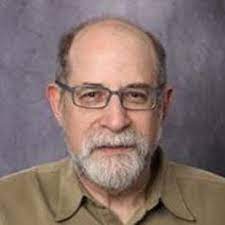Markovsky, Barry

Bio: (1956-) American sociologist. Barry Markovsky received his doctorate from Stanford University, taught at the University of Iowa, and today teaches at the University of South Carolina. He is known for his epistemological approach, which he called "theory construction". This approach connects sociological theory with empirical research, in order to develop structural theories that function at multiple levels of analysis. He believes that social macro-structures cannot be explained through micro-interactions, but that both levels, micro, and macro, form a connected system. He sees theory as part of the methodology, and theoretical and empirical methods are integrated into theoretical research programs that serve to develop theory and increase knowledge.
Markovsky, together with David Willer, developed network exchange theory, which seeks to quantify the effects of social structure on the power of individuals operating within a network. Within networks, the effects of social structure are diminished, so the characteristics of the individual become more pronounced. Markovsky claims that this theory can predict the relative power of different positions within the network and that the social structure has an impact on the feeling of injustice in individuals, which influences them to change their behavior. He believes that the main reason why the theory of distributive justice does not give correct predictions is because it doesn’t study this process.
In the book, Social Psychology of Groups (1993a), Markovsky, together with Edward Lawler, developed the theory of group solidarity. These two authors, to better define solidarity, first define group cohesion as the level to which group members are directly interconnected to each other. Solidarity exists in groups with high cohesion and small intra-group conflicts. Defining solidarity through the structural features of the group enables the use of mathematical tools and computer simulations to analyze and predict the behavior of social networks. Markovsky is one of the pioneers in the application of computer simulation in sociology.
Main works
„Do Status Interventions Persist?”, in American Sociological Review (1984);
„Toward a Multilevel Distributive Justice Theory”, in American Sociological Review (1985);
„Injustice Arousal”, in Social Justice Research (1988);
„Power Relations in Exchange Networks”, in American Sociological Review (1988);
Social Psychology of Groups: A Reader (1993a);
„The Seeds of Weak Power: An Extension of Network Exchange Theory”, in American Sociological Review (1993b);
„A New Theory of Group Solidarity”, in Advances in Group Processes (1994);
„Power in Exchange Networks: Critique of a New Theory”, in American Sociological Review (1997);
„Power and the Perception of Social Networks”, in Social Networks (2011).

